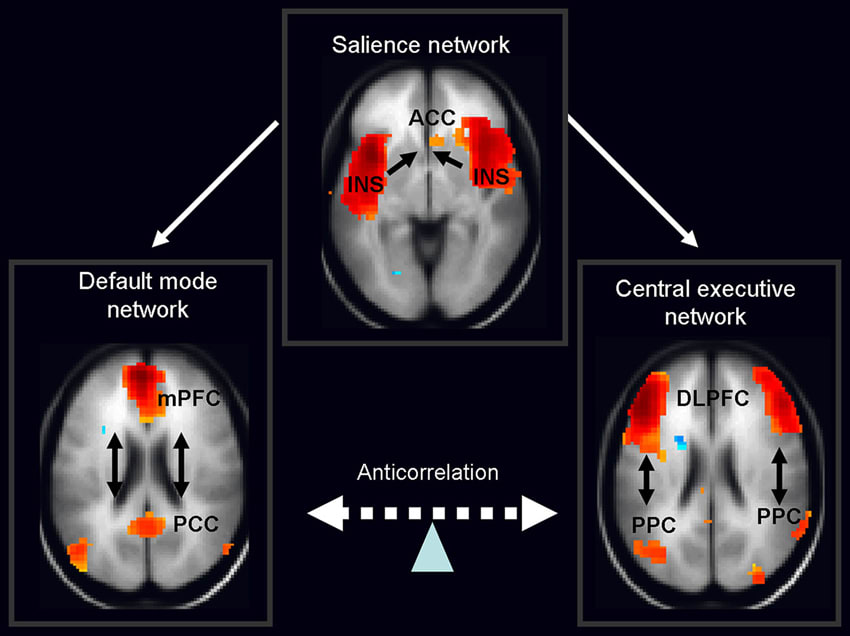What's up with psychonetics?
post by metachirality · 2023-09-16T01:12:05.423Z · LW · GW · 6 commentsThis is a question post.
Contents
Answers 9 Ruslan Prakapchuk 6 Viliam 4 Mir 2 ChristianKl None 6 comments
http://deconcentration-of-attention.com/psychonetics.html
Psychonetics sounds a lot like something that rationalists would be into or at least know about but searching it on LessWrong gives a grand total of one mention in a nine-year old comment about it being a thing that rationalists might be interested in but don't talk about. I myself have no idea what it is beyond vague vibes of it being something adjacent to meditation and cognitive tuning [LW · GW].
Anyway, I'm just wondering if anyone else has heard about it or knows anything about it, particularly whether if there's actually anything there or if its just bullshit. I wouldn't be surprised if no one knows about it since it looks like most of it is in Russian. (If anyone can speak Russian or anyone knows anyone who can speak Russian who would be willing to help me find out more about it do tell!)
Answers
I studied it with Oleg Bakhtiyarov over a decade ago, AMA. In short, it's a corpus of techniques that use attention control beyond mere focus as the main tool. Some borrowed, some novel, but all neatly organised into a framework that allows you to do mind state "algebra" first and then try to reach these new states you derived. Techniques are working, helped me both in maintaining cognitive flexibility and creativity over time and to handle a few extreme situations in my life. There is lot of mythology around outstanding results achieved using these techniques but neither Oleg nor other experienced psychonetics practitioners never demonstrated them to us, only relayed anecdotes.
↑ comment by seed · 2024-02-16T05:07:26.331Z · LW(p) · GW(p)
What were the most impressive results that were supposedly accomplished? Maybe we should run some experiments to see if they can be reproduced?
Replies from: ruslan-prokopchuk↑ comment by Ruslan Prakapchuk (ruslan-prokopchuk) · 2024-02-18T21:57:40.555Z · LW(p) · GW(p)
To name a few:
- Special forces squad constructing and learning eidetic visual language tailored to muscular control. One guy "translates" his high knife-throwing skills into it, another one "reads" the description, goes through a short "comprehension" stage with flu-like symptoms, starts throwing knives almost as masterfully as the first guy.
- People breezing through Schulte Tables (e.g. https://drafterleo.github.io/schulte/) and similar exercises on hard mode (10x10, 4 colours, counting in different directions for each etc.)
- Almost perfectly transferring handwriting skills from a primary hand to a secondary hand in the scope of a single sub-hour meditation. Quick skill acquisition in general. Anecdotally, my psychonetics practice does help me to acquire skills faster but not a magnitude faster in the most cases (hard to measure baseline tho).
- Doing a range of normal (including mental) activities under a debilitating dose of ketamine. Anecdotally, my practice improved the navigation of altered states dramatically but I'd not say I'm capable of overcoming physiology much.
↑ comment by metachirality · 2024-02-15T23:53:50.661Z · LW(p) · GW(p)
Definitely sus that the psychonetics superpowers weren't demonstrated but still seems worth it to try (modulo all the other stuff on my bucket list pushing it back :P).
Is there any good Anglophone resource on this or do I have to learn Russian?
↑ comment by Ruslan Prakapchuk (ruslan-prokopchuk) · 2024-02-18T21:33:53.087Z · LW(p) · GW(p)
The book you linked in the question (http://deconcentration-of-attention.com/psychonetics.html) is the most comprehensive resource in English I've seen. It also covers basic exercises really well, I can help you with translating more advanced ones once you hit the ceiling.
Psychonetics sounds a lot like something that rationalists would be into or at least know about
To me it sounds like one of those made-up words, like "psychotronics" or "quantum mind". The fact that someone invented a word is not a sufficient reason to take it seriously.
You are apparently interested in it, and yet you have no idea what it is about. I have skimmed the page you linked, and I also have no idea. Unless someone says otherwise, for me this is sufficient evidence that we should probably ignore it.
↑ comment by metachirality · 2023-09-16T23:44:37.060Z · LW(p) · GW(p)
I actually initially wrote off psychonetics because of its woo sounding name. However upon skimming the thing which I linked, I noticed two things that made me suspect that psychonetics might be worth taking seriously:
First, the safety rules and in particular, discouraging religious or spiritual interpretation and encouraging you to stop doing it if you start feeling "an otherworldly presence" or feeling as though you have magical powers and seek out a psychiatrist. Second, the purported benefits are limited in scope. It does not claim to solve all of your physical or mental problems, but only to efficiently process lots of information.
After reading the linked website in more detail, I continue to think it's worth taking seriously.
Psychonetics still sounds somewhat woo-ish but not in a way optimized for book sales or anything else I can think of, besides being true. At worst, I think I would be unable to tell between a world where psychonetics worked and a world where it didn't, just because it doesn't activate a lot of the woo red flags, and there's no experiments I can find confirming whether psychonetics works one way or another. This is what I'd think a $100 dollar on the sidewalk that no one has picked up would look like.
i googled it just now bc i wanted to find a wikipedia article i read ~9 years ago mentioning "deconcentration of attention", and this LW post came up. odd.
anyway, i first found mention of it via a blue-link on the page for Ithkuil. they've since changed smth, but this snippet remains:
After a mention of Ithkuil in the Russian magazine Computerra, several speakers of Russian contacted Quijada and expressed enthusiasm to learn Ithkuil for its application to psychonetics—
deconcentration of attention
i wanted to look it up bc it relates to smth i tweeted abt yesterday:
unique how the pattern is only visible when you don't look at it. i wonder what other kind of stuff is like that. like, maybe a life-problem that's only visible to intuition, and if you try to zoom in to rationally understand it, you find there's no problem after all?
oh.

i notice that relaxing my attention sometimes works when eg i'm trying to recall smth at the limit of my memory (or when it's stuck on my tongue). sorta like broadening my attentional field to connect widely distributed patterns. another frame on it is that it enables anabranching trains of thought. (ht TsviBT [LW · GW] for the word & concept)
An anabranch is a section of a river or stream that diverts from the main channel or stem of the watercourse and rejoins the main stem downstream.

here's my model for why it works:
(update: i no longer endorse this model; i think the whole framework of serial loops is bad, and think everything can be explained without it. still, there are parts of the below explanation that don't depend on it, and it was a productive mistake to make.)
- Working Memory is a loop of information (parts of the chewbacca-loop is tentatively my prime suspect for this). it's likely not a fully synchronised clock-cycle, but my guess is that whenever you combine two concepts in WM, their corresponding neural ensembles undergo harmonic locking to remain there.[1]
- every iteration, information in the loop is a weighted combination of:
- stuff that's already in working memory
- new stuff (eg memories) that reaches salience due to sufficient association with stuff from the previous iteration of WM
- new stuff from sensory networks (eg sights, sounds) that wasn't automatically filtered out by top-down predictions
- for new information (B or C) to get into the loop, it has to exceed a bottom-up threshold for salience.
- the salience network (pictured below) determines the weighting between the channels (A, B, C), and/or the height of their respective salience thresholds. (both are ways to achieve the same thing, and i'm unsure which frame is more better.)
- "concentrating hard" on trying to recall smth has the effect of silencing the flow of information from B & C, such that the remaining salience is normalised exclusively over stuff in A. iow, it narrows the flow of new information into WM.
- (bonus point: this is what "top-down attention" is. it's not "reach-out-and-grab" as it may intuitively feel like. instead, it's a process where the present weighted combination of items in WM determines (allocates/partitions) salience between items in WM.)
- this is a tradeoff, however. if you narrow all salience towards eg a specific top-down query , this has smth like the following two effects:
- you make it easier to detect potential answers by reducing the weight of unrelated competing noise
- but you also heighten the salience threshold must exceed to reach you

in light of this, here some tentative takeaways:
- if your WM already contains sufficient information to triangulate towards the item you're looking for, and the recollection/insight is bottlenecked by competing noise, concentrate harder.
- but if WM doesn't have sufficient information, concentrating could prematurely block essential cues that don't yet strongly associate from directly.
- and in cases where features in itself are temporarily interfering w the recollection, globally narrowing or broadening concentration may not unblock it. instead, consider pausing for a bit and try to find alternative ways to ask .
Ithkuil
Natural languages are adequate, but that doesn't mean they're optimal.
— John Quijada
i'm a fan of Quijada (eg this lecture) and his intensely modular & cognitive-linguistics-inspired conlang, Ithkuil.
that said, i don't think it sufficiently captures the essences of what enables language to be an efficient tool for thought. LW has a wealth of knowledge about that in particular, so i'm sad conlanging (and linguistics in general) hasn't received more attention here. it may not be that hard, EMH [? · GW] doesn't apply when ~nobody's tried.
We can think of a bunch of ideas that we like, and then check whether [our language can adequately] express each idea. We will almost always find that [it is]. To conclude from this that we have an adequate [language] in general, would [be silly].
— The possible shared Craft of Deliberate Lexicogenesis [LW · GW] (freely interpreted)
- ^
Furthermore, a relationship with task performance was evident, indicating that an increased occurrence of harmonic locking (i.e., transient 2:1 ratios) was associated with improved arithmetic performance. These results are in line with previous evidence pointing to the importance of alpha–theta interactions in tasks requiring working memory and executive control. (Julio & Kaat, 2019)
There are a lot of different personal development paradigms (or as romeostevensit calls them psychotechnologies). Most of them do I have effects even if they aren't as valuable as their proponents assert.
If only have the distinction of "this is either very useful" and "it's bullshit" you are unlikely to engage well with subjects like this.
Some paradigms are developed in English and others in other languages. There's no inherent reason to assume that English-born systems are better but an inability to access primary sources makes it a lot harder to learn paradigms that were developed in other languages and cultures.
The fact that psychonetics seems to come out of a Russian-speaking academic discourse, suggests that they likely figured out a bit about the phenomena they studied. On the other hand, having much of the literature unavailable in English (or other languages you speak) is a bad sign for studying it in depth.
↑ comment by metachirality · 2023-09-17T22:16:51.935Z · LW(p) · GW(p)
Whenever I ask questions like "Is this bullshit or not", I'm not expecting a simple binary yes/no answer and it's meant to be shorthand for a question which is similar but longer and harder to word and asking for a more complex, specified answer.
Right now, I'm mostly taking a look at the thing I looked, and when and if (big if) I get far enough, I'll try to get Russian acquaintances to help me look into it further.
Curious about other personal development paradigms/psychotechnologies. So far I've mostly been trying to follow the book the Mind Illuminated and dabbling in feedbackloop-first rationality and tuning cognitive strategies.
6 comments
Comments sorted by top scores.
comment by trevor (TrevorWiesinger) · 2023-09-16T01:41:46.998Z · LW(p) · GW(p)
I haven't! But from what I've heard about Tuning Cognitive Strategies, there's a ton of low hanging fruit in anything related to tuning since it probably has a ton of potential and so few people have tried it at all. So if noone else has heard of Psychonetics, it's probably worth looking into, maybe it could contribute to Raemon's new rationality paradigm [LW · GW] which is basically the main cognitive strategy tuning in operation right now afaik.
Replies from: metachirality↑ comment by metachirality · 2023-09-16T01:46:56.672Z · LW(p) · GW(p)
I agree. Right now though, I'm mostly unsure how to act on my knowledge of psychonetics' existence (and the existence of cognitive tuning, for that matter). At least for psychonetics, the sensible first step is probably to just read something on it and maybe distill it in a book review or something. Not sure about cognitive tuning in general since it's not really a thing yet.
If you (or anyone else) are interested in diving into psychonetics or cognitive tuning with me then feel free to contact me, though I can't guarantee anything will come of it because of the turbulent chaos of life (or more realistically my laziness).
comment by gilch · 2024-02-21T19:36:08.587Z · LW(p) · GW(p)
It seems pretty interesting, but also seems like it would take a lot of time to practice for uncertain benefits. I wonder about the applications. Reading through the link a bit, it mentioned learning echolocation or inducing lucid dreams, which could be fun.
I thought the exercise with crossing the red and blue circles was interesting. It said one could eventually learn to see a figure in one color with the other color as the background. I wonder if it's possible to teach an aphantasiac to visualize this way. Would they have to be staring at the circles for that to work, or could they eventually learn to visualize without them? Also, if it's possible to learn to quickly and easily enter and exit a lucid dream state, that might work even better [LW(p) · GW(p)], although only a subset of aphantasiacs even have visual dreams.
I also wonder if savant skills [LW · GW] can be learned this way.
comment by romeostevensit · 2023-09-16T06:36:22.109Z · LW(p) · GW(p)
I read a manual on it a few years ago when I was surveying various non-eastern psychotech stacks. The main technique seemed reminiscent of the way samurai trained in zen for combat advantage, becoming aware of the negative ways stressors affect perception and directly training those aspects of perception to be less affected. It didn't seem broadly interesting enough to directly pursue relative to other psychotech (eg the book Psychocybernetics).
Replies from: metachirality↑ comment by metachirality · 2023-09-16T16:11:10.347Z · LW(p) · GW(p)
Do you have a link to it or something?
Replies from: romeostevensit↑ comment by romeostevensit · 2023-09-17T01:43:04.996Z · LW(p) · GW(p)
the manual? No, it was similar to what you linked to anyway.